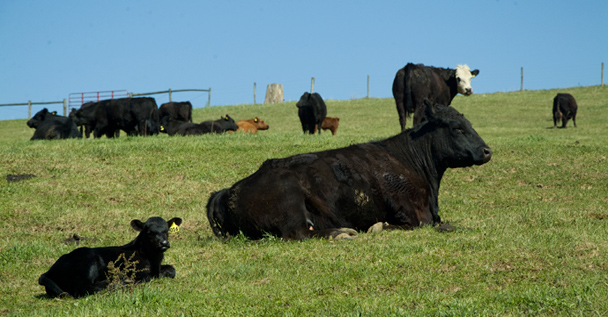Like many food companies born post–Omnivore’s Dilemma, KOL Foods is driven as much by philosophical imperative as by corporate self-interest. It all began in 2007, when Devora Kimelman-Block, a Maryland mother of four, wanted to feed her family grass-fed, humanely raised kosher meat and realized none was available.
Kimelman-Block had kept a vegetarian kitchen for 15 years, because she couldn’t find meat that allowed her family to both observe kosher dietary law and avoid flesh from factory-farmed animals. But as more and more nonkosher sources for ethically raised, pastured meat began appearing, Kimelman-Block saw no reason why kosher Jews shouldn’t have options, too. So she formed partnerships with a local farmer, a kosher slaughterhouse, and a Washington, D.C., synagogue; coined the name KOL for “Kosher, Organic, Local”; and sent out an email to her friends and synagogue members advertising glatt kosher, organically raised, local, grass-fed beef.
“I thought I’d do it for family and friends as a nice little hobby,” Kimelman-Block says. “But I put up this little Web site and all of a sudden I get people coming from Pennsylvania to D.C. to get my meat.” Her second email yielded sales of more than 2,400 pounds of steaks, roasts, and ground beef to members of 14 area synagogues, from Reform to Orthodox. In 2008, KOL became an LLC and now ships specialty beef, lamb, chicken, turkey, and duck to customers nationwide.
Kimelman-Block realized that she’d found a hole in the market, one that was growing as more kosher Jews began to question where their meat was coming from. “I think ultimately what we’ve really been able to do, which is very tricky, is to enable people to actualize their modern and ancient values,” she says.
Over the past decade, the kosher food industry has boomed. According to the Mintel market research firm, sales reached $12.5 billion in 2008, the most recent year for which data is available, marking a 64 percent increase from 2003. The rise was driven in part by nonkosher consumers who view kosher foods, which are prepared under strict religious supervision, as safer and cleaner than their conventional counterparts. Even so, the kosher industry has been slow to hop on the organic/sustainable bandwagon, creating the perfect opportunity for KOL to flourish.
Although Kimelman-Block founded KOL right before the nation’s economy went south, ultimately her timing couldn’t have been better. In May 2008, U.S. Immigrations and Customs Enforcement agents raided Agriprocessors, the largest glatt kosher slaughterhouse and meatpacking plant in the United States.
The Postville, Iowa, facility had previously faced allegations of animal mistreatment, pollution, and violation of labor laws. The raid was one of the largest in U.S. history, and resulted in the arrests of nearly 400 illegal immigrant workers, child labor charges, and a 27-year prison sentence for financial fraud for a plant manager. The debacle, which was covered extensively in the general press, created a crisis of confidence among observant Jews, who had always viewed kosher meat as both clean and ethical. (Dietary law dictates that animals must be in good health and must be slaughtered as quickly as possible by a shochet, or Jewish ritual slaughterer.)
The Agriprocessors scandal “moved the conversation about Jewish ethics in meat production to the front pages of The New York Times and the forefront of Jewish institutions,” says Sue Fishkoff, the author of Kosher Nation, a 2010 book on the kosher food industry. “Since the raid, every Hebrew school, every day school, every Hillel, and every synagogue talks about what their kosher policy is.” She credits KOL with inspiring “what looks to be a fast-growing field”: Since Kimelman-Block launched her business, smaller companies like Mitzvah Meat, Grow & Behold, and Kosher Conscience have sprung up around the country.
The challenges Kimelman-Block faced in starting KOL were substantial and in some cases unique. On top of the logistics of simply getting meat from the processors’ freezers into her customers’ hands, there was the issue of getting meat to the freezer itself. For her poultry, for example, Kimelman-Block wanted the chickens to be slaughtered and processed on the farms where they were raised. But since kosher law forbids the scalding of chickens to remove their feathers—a routine practice in conventional processing—she initially wasn’t able to offer poultry.



 Pinterest
Pinterest


